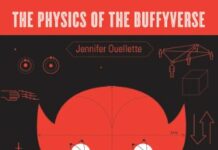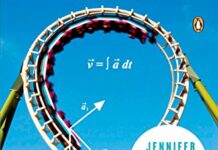
Ebook Info
- Published: 2014
- Number of pages: 348 pages
- Format: PDF
- File Size: 2.03 MB
- Authors: Jennifer Ouellette
Description
As diverse as people appear to be, all of our genes and brains are nearly identical. In Me, Myself, and Why, Jennifer Ouellette dives into the miniscule ranges of variation to understand just what sets us apart. She draws on cutting-edge research in genetics, neuroscience, and psychology-enlivened as always with her signature sense of humor-to explore the mysteries of human identity and behavior. Readers follow her own surprising journey of self-discovery as she has her genome sequenced, her brain mapped, her personality typed, and even samples a popular hallucinogen. Bringing together everything from Mendel’s famous pea plant experiments and mutations in The X-Men to our taste for cilantro and our relationships with virtual avatars, Ouellette takes us on an endlessly thrilling and illuminating trip into the science of ourselves
User’s Reviews
Editorial Reviews: From Booklist *Starred Review* Who are we? Who am I? Those are the questions science writer Ouellette (The Calculus Diaries, 2010) tackles in this elegant and very personal inquiry into identity and the science of the self. Ouellette examines the many aspects of the making of a self, including discussions on nature versus nurture. Regarding the latter, she believes the origins of the self combine both elements, “locked in an intricate dance.” Ouellette leapfrogs through scientific, philosophical, and even pop history, which makes for fun reading as she expresses her views of an array of figures and artifacts, from Gregor Mendel to Francis Galton, John Locke to Kevin Bacon, Harry Potter movies to Christopher Nolan’s mind-bending sci-fi film, Inception. She discusses the so-called Prozac gene, brain scans, the “hangover gene,” avatars, sexual orientation and gender-atypical behaviors, the persistence and accuracy of memory, consciousness and the soul, and other provocative topics. Sometimes she’s funny, such as when she experiments with LSD for “research” purposes; other times, poignant: “Everyone finds their own way to create meaning out of our allotted time on this Earth.” An entertaining, insightful, and thoughtful reflection on our assumptions about ourselves and the mystery that is at the heart of the human story. –June Sawyers Review Praise for Me, Myself, and Why“Ouellette is a smart, well-studied, and personable companion. . . . There are a number of approaches to defining a person, and this task has engaged philosophers, theologians, scientists, and pretty much everyone who has ever lived, at least since mirrors were invented. Ouellette looks at all of the methods listed above, and more, in trying to figure out who she is and what tools are at hand for figuring out who anyone is.”—The Wall Street Journal“In Me, Myself, and Why Ouellette offers curiosity-inspiring glimpses into science , coupled with an obvious love for the material and a healthy dose of humor. . . . The combination of historical anecdote and current research is impressive.”—The New York Times Book Review“Ouellette explores the concept of identity through scientific, medical, and psychological testing on her journey of self-discovery. She is an expert at communicating tough scientific concepts to broad audiences, and here she uses personal narrative to appeal to her readers as she skillfully recounts her experiences.”—Psychology Today“Very entertaining . . . It is hard to imagine a more delightful guide to the science of self than Jennifer Ouellette.”—Jim Holt, Prospect“Tackling ‘the science of self’ could easily get tedious or even a little boring, but in the capable hands of Jennifer Ouellette, it’s nothing but fun. . . . Her ability to make rather advanced theories interesting and relatable makes this a must read for those who have a passion for science but would rather be reading Joan Didion.”—Bust“An engrossing and often amusing tour of elite labs and edgy research.”—Nature“Who are we? Who am I? Those are the questions Ouellette tackles in this elegant and very personal inquiry into identity and the science of the self. . . . An entertaining, insightful, and thoughtful reflection on our assumptions about ourselves and the mystery that is at the heart of the human story.”—Booklist (starred review)“Solid science well infused with readable history, pop culture and personal stories. . . . Ouellette’s personal anecdotes reveal a writer with keen intelligence, curiosity, a spirit of adventure and a sense of humor.”—Kirkus Reviews“A clear, direct tour of the biology of the self . . . from an author with a flair for making complex subjects simple.”—Publishers Weekly About the Author Jennifer Ouellette is the author of three previous books. She writes the popular science and culture blog Cocktail Party Physics for Scientific American. She lives in Los Angeles, California. Read more
Reviews from Amazon users which were colected at the time this book was published on the website:
⭐Self is a process and not a thing and the process is present at all times when we are presumed to be conscious. It is not located in any particular part of the body but it is an emergent phenomenon. If there is no matter (or energy), the mind doesn’t exist. Soul is uniquely generated by the causal interaction with myriads of elements of the self. The Self-as-Object (the material “me”) and Self-as-Knower (the subjective, self-aware “I”) are linked. The former is the fundamental cognitive layer that we share with all animals and the latter is a richer self-representation that is uniquely human.The Self is viewed differently in many fields of study. Physicists suggest that consciousness and the laws of physics are a coherent whole. Existence is explained by the operation of laws of physics on matter (or energy) in spacetime, and consciousness is inherently entangled with physical reality. For a biochemist, self would result from biochemical mechanisms involving genes, hormones, proteins, enzymes and a host of environmental factors that shapes up an individual. The intricate wirings of the brain are the essence of self for a neurobiologist, and for a social psychologist, it is a product of our environment and surroundings. For Vedanta philosophy of Hinduism and many philosophers, reality is an illusion.In this book, Science journalist Jennifer Ouellette has done extensive literature study to write this challenging book. Even though she has not done any original research in this field, but she has been in touch with the subject matter from discussions with leading biologists, neurologists, geneticists and psychologists. A brief summary of the book is as follows; one of the most active regions of brain, when it comes to our sense of self, is the prefrontal cortex. It is the default mode network which is more active during daydreaming and is critical to self-recognition. This is where we store our representations of the people we know and process social information and predict how other people are likely to behave. So what accounts for the individual differences? The information encoded in the unique synaptic patters in a person’s brain is determined partly by genes and partly by environment. Synapses are not passive storage devices but are modified by experiences, and the brain shapes its unique sense of self. Each and every wire in the brain; the dendrites and axons that form the synaptic connections between neurons shapes self. A comprehensive map of neural connections in the brain (the wiring diagram/circuit diagram of brain) is called connectome and they define the characteristics of self. The functions of the connectomes during the resting state and during tasks help in understanding how neural structures result in specific functional behavior such as consciousness. Connectomes are modified by altering the connections as a response to neural activity patterns that accompany experiences. This is where personal nature meets physical nature. Since brains re-wire constantly in response to experience, one would need many connectomes to construct detailed map of synapses. In addition we need a theory to relate brain-functions to anatomical connectivity, because mere anatomy is like a network of roads, but that will not provide the functions, unless we know all the vehicles on the road and cargo they are carrying and where they are headed including their origin, then we will have some knowledge of overall economic and social functions.With regards to future, the author has something interesting. It is possible to get a total personality download of our selves, an avatar or an incarnation of an individual self in virtual reality in cyberspace. With immersive digital technology, the avatar won’t be you in the sense of a conscious being, but a perfect representation of you with which your future generations can interact with this digital self of yourself. An avatar of the future will learn and grow just like a real life of you. It not only uses real life memories of you and your experiences but also learns from its interaction with its environment and people. You can upload your consciousness, mind, memories, thoughts and experiences into cyberspace and achieve immortality. Many neurobiologists believe that this may create many different representations of us that live in virtual space. The biggest challenge in all this is creating human consciousness in cyberspace.She amuses herself and the readers with her excursion into the Wonderland using “Orange Sunshine,” the mind-altering substance LSD to discover herself. This is unorthodox and juvenile excursion, but she defends her actions by listing many luminaries in science, technology and show-business who also used this psychedelic substance. The author concludes with no firm thought on the nature of self and consciousness but some key ideas from leading biologists and medical professionals are discussed. One thing that struck me was that she has not discussed physicists’ perspectives of consciousness that are in better agreement with many philosophers, even though many of her friends are physicists and her husband is Caltech physicist Sean Carroll. I recommend this book to anyone interested in biology of Self.
⭐I enjoyed this book very much. It covers a wide range of subjects and perspectives in discovering “you”/the brain/consciousness/neurology/etc., basically the “Me, Myself, and Why” just as the title says is the best way to put it. It is a “self”-discovery first person recount that includes both research and anecdotes without going too technical or not technical enough for the well-educated reader. The author is very talented in her writing style at weaving together history, science/research, and her own personal observations to produce a comprehensive exploration into all of the various factors involved in understanding “you”. I have always been interested in the sorts of topics presented in her book from genetics to psychology/neurology and more, and I regularly read scientific studies and perform in-depth research of my own into the sorts of matters discussed in her book (as a non-medical professional). Even though in some parts of the book I thought, yeah yeah, I already know about all that, she nevertheless writes in a way that makes it an interesting read and she nevertheless discussed certain aspects from each discipline that I had never encountered on my own or otherwise presented the information in a way that, read in combination with the rest of the topics covered in the book, made me think more comprehensively about the complex interactions between each subject matter and the potential areas of new discovery in ways that I had never done/thought of before. In sum, it is a well-written thought-provoking book that is not pretentious, pedantic, or narcissistic. I came back to this page not to write a review but to see what other books this author has written that I may want to buy, so that is as good of an endorsement as there is I suppose.
⭐Its all good
⭐Have you ever wondered why you act and think like you do. Maybe this book will help unravel the mysteries of the mind and body. Some is fluff but there as a few interesting facts included.
⭐This book is well researched and contains a lot of very interested information. However the author bird-walks around, and it seems hard to understand how all of the information really fits together. Some of the information, while interesting, seemed to have little to do with the proposed topic.
⭐Quellette makes finding out about ourselves and why we are who we are a fun journey. Within the science and research that the author did is humor and a serious quest to find out why we are. This was very readable and Quellette led us on a quest that was both informative and delightful.
⭐When I read the review of this book in the WSJl, I ordered it with great anticipation. Unfortunately, it didn’t live up to expectations. The writing is lively but unfortunately hasn’t held my interest. I find myself not looking forward to reading it and indeed have removed it off my carousel. I haven’t deleted it from the Kindle, but I do wonder if I’ll ever pick it up again. It’s a shame because the subject matter is quite intriguing to me. I don’t like to give bad reviews to writers. The very fact that a writer can give birth to a book deserves recognition.
⭐In my early twenties I worked for a few months in an asylum. That experience challenged my perceptions of what constitutes “crazy” and set me up for a lifelong interest in what makes us who we are. This book is a very interesting exploration of current thought on the subject. Ms. Ouellette has an engaging writing style.
⭐Die Erwartung war, aus diesem Buch etwas Neues aus der Wissenschaft zu erfahren. Vieles kam mir schon als aus der Schulzeit bekannt vor, und die war Anfang der 1980er Jahre bereits zu Ende. Sollten Amerikaner wirklich so wenig wissen, dass sie aus diesem Buch noch etwas lernen können? Wie Denken funktioniert, lernt man nicht, in dem man der 2101. chemischen Reaktion noch eine 2102. und 2103. hinzustellt. Das kann man nicht als Erkenntnisfortschritt verkaufen. Das Mysterium liegt woanders begraben. Das Buch gehörte also sehr bald nicht mehr zu unserem Hausrat.
⭐
⭐This is a great book, I couldn’t put it down. Ouellette does an amazing job of explaining the science behind who we are and what might be the cause. She includes her own experiences and personal journey which brings her personality into her writing. I have listened to multiple podcasts in which she is a guest and she incredibly engaging and a great source to learn from. She is relatable, knowledgeable, engaging, and fun. I HIGHLY recommend this book for absolutely EVERYONE! It’s great for anyone who has ever considered who you are and why you act and make decisions the way you do, and if you haven’t, it’s time to start and this book is a great starting line.
⭐Very readable, very enjoyable, I learnt a lot and dispelled some myths – what’s not to love!
⭐not what I exppected did not enjoy the read at all
Keywords
Free Download Me, Myself, and Why: Searching for the Science of Self in PDF format
Me, Myself, and Why: Searching for the Science of Self PDF Free Download
Download Me, Myself, and Why: Searching for the Science of Self 2014 PDF Free
Me, Myself, and Why: Searching for the Science of Self 2014 PDF Free Download
Download Me, Myself, and Why: Searching for the Science of Self PDF
Free Download Ebook Me, Myself, and Why: Searching for the Science of Self


